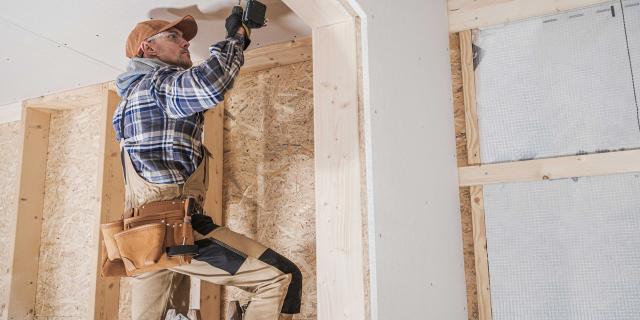ALL California employers must provide coverage for their California employees
How Much Liability Insurance Do I Need for Rental Property?

Owning and managing rental property can be rewarding, providing you with a steady source of income and potential for long-term financial growth. However, with the benefits come responsibilities, and one of the most critical aspects of being a landlord is ensuring you have the appropriate insurance coverage. Among the various insurance options available, landlord liability insurance stands out as essential.
What is Landlord Liability Insurance?
Landlord liability insurance, also known as landlord liability coverage or rental property liability insurance, is a type of insurance specifically designed for property owners who rent out their properties to tenants. This insurance coverage offers financial protection in the event that you, as the landlord, are found legally responsible for injuries or damages that occur on your rental property.
While property insurance generally covers physical damage to the building and its contents, liability insurance extends its coverage to protect you from potential legal claims and lawsuits. It shields you from the financial repercussions of accidents, injuries, or property damage that may occur on your rental property and are deemed to be your responsibility as the property owner.
Imagine a scenario where a tenant or a guest slips and falls on a wet floor in your rental property, resulting in injuries. If they decide to pursue legal action against you, the financial consequences could be substantial.
What Does Liability Insurance Cover?
Landlord liability insurance covers a range of potential situations where you, as the property owner, could be held liable for injuries or damages that occur on your rental property. Some common scenarios that landlord liability insurance may cover include:
- Slip and Fall Accidents: If a tenant or guest slips, falls, and sustains injuries on your property, you could be held liable for their medical expenses and other related costs.
- Injuries Caused by Property Negligence: If an injury occurs due to poor maintenance or negligence on your part, liability insurance can help cover the resulting costs.
- Property Damage to Others: If your property causes damage to a neighbor’s property, liability insurance can help cover the repair costs.
- Legal Defense Costs: If you’re faced with a lawsuit related to your rental property, liability insurance can cover legal fees, court costs, and potential settlements
- Dog Bites or Animal-Related Incidents: If a tenant’s pet bites or injures someone on your property, liability insurance can provide coverage for associated medical costs and legal fees.
How Much Does Landlord Liability Insurance Cost?
The cost of landlord liability insurance can vary based on several factors. These factors include the location of the property, the number of rental units, the type of property, the coverage limits you choose, and the level of risk associated with your property. On average, landlord liability insurance can range from a few hundred to a few thousand dollars per year.
For a single-family home, the cost might be on the lower end of the spectrum, while properties with multiple units or properties in high-risk areas could have higher premiums. Adding more coverage, such as umbrella insurance, which provides additional liability protection beyond the limits of your standard policy, can also influence the cost.
Determining the Right Coverage
When determining how much liability insurance you need for your rental property, it’s important to consider a few key factors:
- Property Type and Size: The number of units and the type of property (single-family home, apartment complex, etc.) can influence your liability exposure.
- Location: Properties located in areas with higher crime rates or in disaster-prone regions might require more coverage
- Risk Assessment: Evaluate the potential risks associated with your property. Consider factors such as the condition of the property, its age, and any amenities offered to tenants.
- Tenant Profile: The type of tenants you have can impact your liability risks. For example, if you have families with children, there might be a higher risk of accidents.
- Personal Financial Situation: Consider your personal assets and financial situation. Opting for higher coverage limits can provide greater protection for your assets in case of a significant claim.
Landlord Liability Insurance For Your Rental Property
Landlord liability insurance is crucial to protecting your rental property investment and your financial well-being. Accidents and unexpected events can happen, and being unprepared can lead to substantial financial liabilities.
By securing the right amount of liability coverage, you’re ensuring that you have a safety net in place to navigate any legal claims or lawsuits that may arise from incidents on your property. Contact JVRC Insurance Services today to discuss your rental property needs.
Frequently Asked Questions about Business Insurance
Largely because of claims that occur, experience modifications, fraud and payroll amounts statewide
The Department of Insurance website, The WCIRB, The Insurance Journal and many other trusted sources
It’s a percentage that compares the payroll and loss history of your company to a similar-sized company within the same industry. For example, if a company has a better than average loss record, their experience modification would be less than 100%. If that is the case you would receive a credit on your Workers Comp rates. If that is not the case however it would result in the opposite, an increase in rates. The experience modification can be closely compared to an individual’s credit score.
It is illegal in the state of California to not carry it. There will be penalties, fines and many other consequences if a worker is injured and you do not carry it. Furthermore if there is a claim and you do not have California Workers Compensation Insurance at the time the employer is still liable for all costs relating to the injury which can be devastating to any company.
This is calculated based on your payroll, premium paid and by your reported losses for the last three consecutive years
The Department of Insurance regulates the laws and the State Senate makes them
It’s a component used determine the price an employer pays for their workers’ comp insurance premium. Classifications are established for each industry and typically include all jobs or operations within a particular business.






